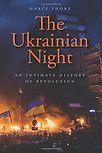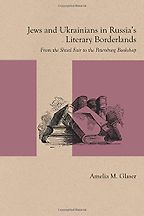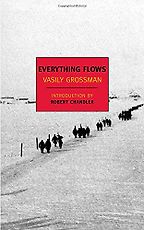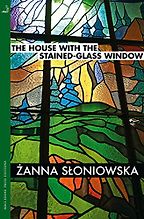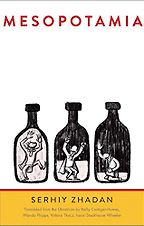You’ve observed that Ukraine is “unreal” to many Europeans. Please explain what you meant?
Ukraine is a place about which most Europeans and Americans tend to know very little. Most people, understandably, are absorbed in the problems of the place where they themselves live. Faraway places are often not real to us.
After the Maidan, after the annexation of Crimea and the beginning of the war in Donbas, it was impossible not to think about 1938, and the Munich Conference. Chamberlain “appeased” Hitler at Munich, allowing him to take the Sudetenland from Czechoslovakia. Hitler’s argument was quite similar to Putin’s: ‘it is ours because ethnic Germans live there/it is ours because ethnic Russians live there. This was historically our land, unjustly taken from us,’ and so forth. After Hitler annexed the Sudetenland, Chamberlain returned to England and said, “How horrible, fantastic, incredible it is that we should be digging trenches and trying on gas-masks here because of a quarrel in a faraway country between people of whom we know nothing.”
I think about the war still going on in the Donbas and I keep hearing in my mind “a quarrel in a faraway country about people of whom we know nothing.”
Your five books demystify the region. Your first selection seems to contain a capsule history; beyond that reason, why have you selected Amelia Glaser’s Jews and Ukrainians in Russia’s Literary Borderlands?
“Ukraine” means borderlands. In the territory that is now present-day Ukraine, Ukrainian, Russian, Polish, Yiddish and German languages, literatures, humors, cultures, joys and despairs intermingled for hundreds of years. In this study spanning the century from 1829 to 1929, Glaser leads us into encounters among the most variegated characters. The book takes us through the First World War, the fall of the tsarist empire, the Bolshevik Revolution, and the Civil War that followed. In these years, Kyiv alone was occupied by five different armies; the confusion was breathtaking—the literature as well.
The author is a scholar of comparative literature who is herself not Ukrainian, but who came to learn Russian, Ukrainian and Yiddish and to grasp Ukraine extremely well. The book allows us to wander among and within wonderful tales and wonderful literature. The setting of the marketplace is in some ways the center of this book, the marketplace as a site that illuminates the simultaneous drama and everydayness of encounters with others.
So this book gets to the essentials of Ukraine’s identity?
To me, Ukraine is precisely this pluralism, these encounters. Americans, or maybe Westerners in general, have a tendency to use ethnic categories as a shorthand for understanding other parts of the world. There’s a sense that if these are Ukrainian speakers on the Maidan, then they must be Ukrainian. And if they’re Russian speakers, they’re really Russian. And if there’s a war going on, it must be the ethnic Russians versus the ethnic Ukrainians. In my opinion, this would be a deep misunderstanding. To me, the essence of Ukraine’s identity is precisely this intermingling, these riches of the borderlands.
In a New Yorker piece about Serhiy Zhadan’s novel Voroshilovgrad, I describe how I wrote to Zhadan in Polish about a novel he had written in Ukrainian and I had read in English—and he answered me in Russian. And that this whole situation was very Ukrainian—which it was.
Your second selection takes us back to Soviet times: Vasily Grossman‘s Everything Flows. What does it communicate about the character of the Ukrainians?
“A lot can be forgiven anyone who, in the filth and stench of camp violence, remains a human being,” Vasily Grossman’s protagonist, Ivan, tells us. This unfinished novel by the Soviet Jewish writer pulls us into the Stalinist Terror. When, after Stalin’s death, Ivan returns from many years in the gulag, he meets Anna, a middle-aged woman who in the 1930s worked as a Communist Party bookkeeper in Ukraine. During one long night, Anna tells Ivan the story of the famine in Ukraine: grotesquely emaciated girls and boys, starving peasants feeding on cats and dogs, parents eating their own children, the howling. “‘Who’s going to hear them?’ I’d think,” Anna tells Ivan, ‘There is no God.’”
“‘Ukraine’ means borderlands”
Everything Flows takes us through the Stalinist experience in a very condensed but pointed way. It takes us through the story of the famine in Ukraine, and there’s no way to understand Ukraine without understanding the horror of that famine.
Ukraine is such a mystery to many that it is still often referred to with a prefatory article, a vestige of when it was a Soviet republic. What attracted you to studying Ukraine?
I got involved in Eastern Europe because I was at an impressionable age in 1989. I was caught up in the drama of the fall of the Berlin Wall, the revolutions, the breakup of the Soviet Union. I was the last generation raised during the Cold War. I grew up with a Reagan Era vision of the world as two camps divided by an Iron Curtain. All of that unraveled just as I was coming into political consciousness.
Perhaps another reason Ukraine is so mysterious to many is that to talk about it we must be able to pronounce its place names and the proper names of the people who write about the region, which I find to be an impossible feat. Help me with the next book you selected Greetings from Nov-
Greetings from Novorossiya by Paweł Pieniążek! This book came out a couple of months ago in English translation.
Tell us about it.
Paweł Pieniążek is a very young Polish journalist. He was beaten by Ukrainian president Viktor Yanukovych’s riot police in the early days of the Maidan, in December 2014. Nonetheless, he stayed in Ukraine, and after Yanukovych’s defeat and flight to Russia, followed his story to the Donbas. This is some of the best reportage from a little-understood war. Pieniazek’s stories reveal the tragedy of hybrid war in the age of post-truth: people are being killed in fact for reasons that are fiction.
You read it in Polish but recommend it in English.
Paweł translates very well into English in part because he’s totally unpretentious. The prose is very clear, very fluid, there’s no ostentation.
He has an old-fashioned journalistic respect for empirical reality. He’s Polish, which makes him not so distant from Ukraine geographically or linguistically, or culturally. He speaks near-native Ukrainian and good Russian. He had excellent access, but also a bit of distance because he’s still a foreign reporter. He’s extremely good at explaining things clearly and telling little stories that reveal the absurdity and tragedy of this war about which we know so little, a war which in fact threatens to unravel all of Europe.
Turning to The House With the Stained-glass Window: Why are you recommending this one by …
Żanna Słoniowska, a Ukrainian-born Polish author. This is her debut novel.
It’s about four generations of women who share an apartment in a house in Lviv. The story extends from the Soviet Terror of the 1930s to the Ukrainian revolution of 2014. This is a Bildungsroman, in which the coming-of-age of the narrator, the youngest of the women, draws us into an archaeology of Lviv; the once-Habsburg, then-Polish, now post-Soviet Ukrainian city reveals itself as a layered composition. It’s a beautiful novel.
Lviv is a border city. Tell us about it.
Lviv is a city in western Ukraine, which is precisely the part of Ukraine that has been passed back and forth among different powers the most.
For a long time Lviv had been Lwów, a city in the Polish-Lithuanian Commonwealth; in the late 18th century the Commonwealth was partitioned. Maria Theresa and the Hapsburg empire took this southern part and called it “Galicia.” Polish Lwów became Austrian Lemberg, a Hapsburg city with Hapsburg architecture. In the aftermath of the First World War, Poland gained its independence and defeated Ukrainian forces to claim the city again.
Get the weekly Five Books newsletter
Following the Molotov-Ribbentrop Pact (the Nazi-Soviet non-aggression treaty), in September 1939, the Red Army invaded what had been eastern Poland, and integrated Lviv into Soviet Ukraine. In summer 1941 the Wehrmacht came, the Germans pushed out the Red Army and occupied the city. Later in the war, the Red Army returned. The Jews who had lived in the city were killed, and as a result of population exchanges (“ethnic unmixing,” so to speak) so fashionable at the end of the Second World War, ethnic Poles were sent to Poland and Lviv became a Soviet Ukrainian city. Then in 1991, with the fall of the Soviet Union, Ukraine—Lviv included—became an independent country.
The novel takes you through these different incarnations of the city.
In a piece you once wrote, you observed that the Poles and Ukrainians have a special bond. How does the relationship between Ukrainians and their neighbours differ from relationships between citizens of other neighbouring states because of the fluidity of Ukraine’s borders?
The borders have moved so many times. There were vicious episodes of ethnic cleansing during and after the Second World War. In 1943, there was Ukrainian-Polish ethnic cleansing in which radical Ukrainian nationalists, some of whom had been collaborating with the Germans, massacred Poles in Volhynia. After the war, the Polish government, in an effort to rid itself of concentrations of ethnic Ukrainians inside Polish territory, forcibly resettled thousands of Ukrainians in western Poland, murdering some in the process.
At the same time, Poles and Ukrainians share a lot. They share experiences of Soviet occupation and German occupation. They share the experience of being caught between Hitler and Stalin and being passed back and forth between them. Their languages are mutually intelligible. The relationship is enormously complicated—as most relationships of any significance are.
Mesopotamia is your final recommendation. Tell us about this book by…
Serhiy Zhadan. He’s a brilliant writer, a poet, novelist, and the lead singer of the ska band Sobaky v Kosmosi (Dogs in Outer Space.)
Mesopotamia is Zhadan’s most recent book to appear in English. It’s a novel composed of different stories, mostly prose with some poetry as well. The stories are set in Kharkiv, a city in eastern Ukraine where Zhadan, who is himself from the Donbas, now lives. It was unclear in spring of 2014 whether there was going to be a separatist rebellion in Kharkiv, whether it was also going to become part of the territory ensconced in war.
What do we learn about Ukraine by reading Mesopotamia?
Serhiy Zhadan is really a genius at drawing the reader into the inner lives of these characters in post-industrial, post-Soviet places. His literary influences are ones that American readers will understand: the Beat poets, Kerouac and Burroughs, magical realism. Despite the fact that he’s writing about people in a radically different time and place, it’s somehow very easily relatable. He has an uncanny ear for dialogue. And he evokes a deep love utterly devoid of sentimentality for these people about whom we have long known nothing.
Your account of the Ukrainian Revolution differs from earlier accounts and not just by putting a human face on historical events. What did you seek to add with your work?
I wanted to capture the revolution as lived experience. The commentary on the Ukrainian Revolution was largely being written, understandably, by political scientists and policy people who are used to writing about events as they occur, reflecting on their impact on geopolitics.
This book offers no policy prescriptions. It does not say we should put sanctions on x but not on y. It tries to put human faces on historical actors, to capture the subjective experiences of participants, to help us understand what pushes people to risk their lives, to make decisions that a few months earlier they never could have imagined themselves making.
And just to preview, what did you learn about the ecstasy and tragedy of revolution?
You learn about the human capacity for solidarity—even though this solidarity is fragile, precarious, and almost always short-lived. Nonetheless, the Maidan is testimony to that human capacity we rarely suspect we possess.
Revolutions also reveal aspects of temporality. During the Maidan, people began to lose track of time, the distinction between day and night blurred. What does it mean that the human experience of time changes? The present has always been a problem for philosophers: how can we capture the present, which seems to have no duration? As soon as you try to grab it, it has already passed.
Jean Paul Sartre describes the present as a border between the en-soi (the “in-itself”) and the pour-soi (the “for-itself”) by which he means a border between what has been, what has happened, who you have been up to that moment, that is, what is inert, cannot be changed—and the possibility of going beyond what has been, and who you have been, the possibility of something new. That border—the present—is with us every moment, but we generally do not notice it. We’re not conscious of crossing that border from the realm of facticity into the realm of transcendence. Revolutions illuminate that border.
So revolution, like Ukraine, is a borderland?
Yes. It is what in German is called a “Grenzerfahrung“—literally a “border experience.”
Interview by Eve Gerber
March 22, 2018. Updated: September 5, 2023
Five Books aims to keep its book recommendations and interviews up to date. If you are the interviewee and would like to update your choice of books (or even just what you say about them) please email us at [email protected]
Five Books interviews are expensive to produce. If you've enjoyed this interview, please support us by donating a small amount.

